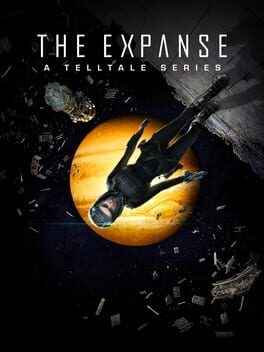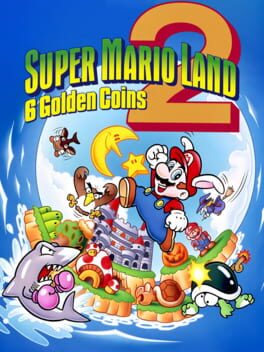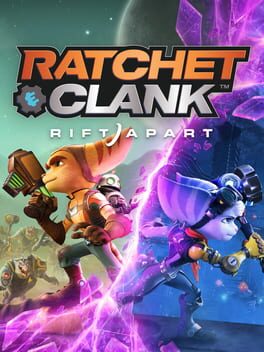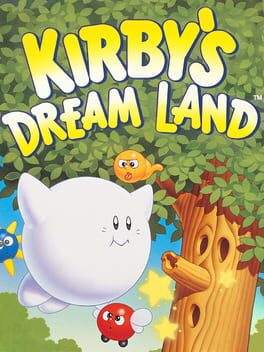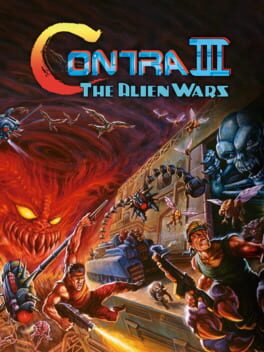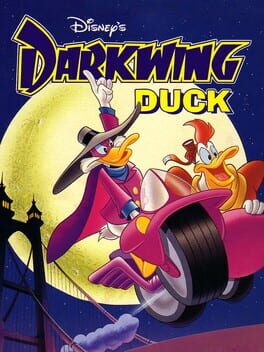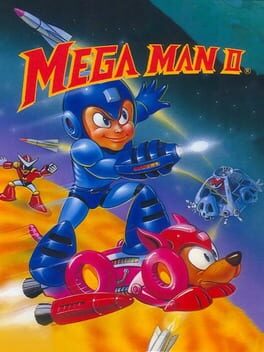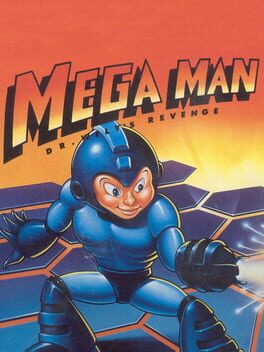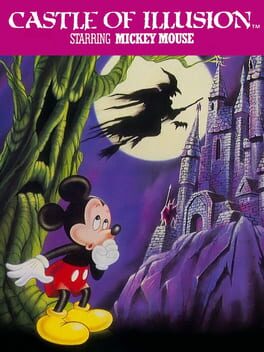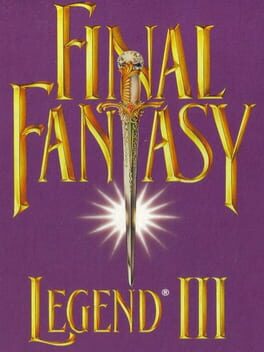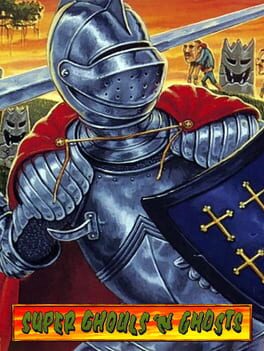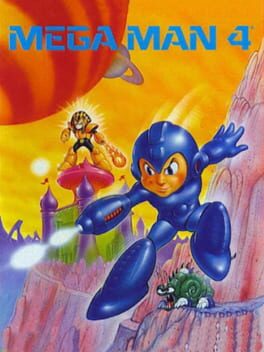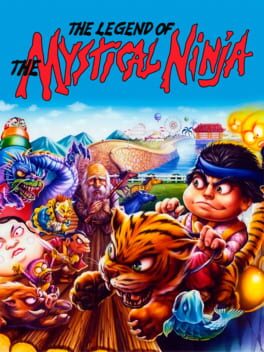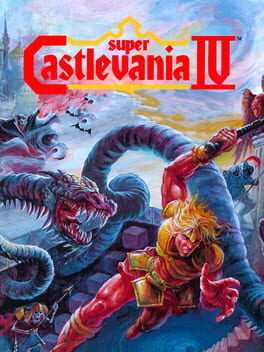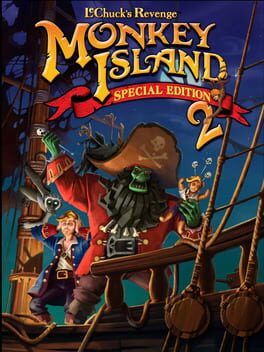TheMaxine
This review contains spoilers
This review is from the perspective of someone who hasn't seen the show. Seeing as it is a prequel though, I figured I'd give it a shot and see if the 1st episode is enough to hook a newcomer in. The short answer, eh. Not really.
I would like to clarify that the 50-minute estimate other reviewers have been giving is inaccurate. It's 50 minutes, if you're rushing. Let's say you actually take the time to read the logs and hunt down the optional interactables though, I'd say it's closer to 80-90 minutes. Admittingly though, this does not make much of a difference, if you recall that most previous Telltale games generally shoot for at least a length of 2 hours. The first episode is still surprisingly short, and for Telltale's first official jump back into video games since their shutdown, the whole experience is quite whelming.
I will say though, I did kinda enjoy the exploration of the abandoned ship. The floating decapitated heads all over the place struck an interesting imagery and made my brain work towards figuring out what could've done something like this. The answer being "space pirates" wasn't particularly satisfying, I was kinda hoping for a monster or something, but maybe this is the wrong IP to look for that kinda thing.
I did not care for the crew members, and attempting to impose difficult choices such as whether to cut their leg off or not seemed way too rushed. Of course I'll cut the leg off, I barely know the guy enough to spare him that sort of anguish. And when I do it just to make the story seem more entertaining rather than because I struggled to make the right choice, you know that's when I really didn't give a shit. They're all whatever. They're all still strangers to me. Perhaps I would've felt more attachment if I knew them from the show, but right now, an hour and 20 minutes is not enough to get to know these guys on a personal enough level that cutting a leg off actually means something to me.
So, all in all, it didn't sell me, and I'm likely not gonna be coming back to the rest of the episodes. I only hope Wolf Among Us 2 will serve as a more effective comeback to what made Telltale special, y'know, amongst all the rushed and crunched games they cranked out year after year once upon a time. The company's got a long way to go to get their reputation back, and while this attempt was not offensive, I don't think it'll propel them upwards either.
I would like to clarify that the 50-minute estimate other reviewers have been giving is inaccurate. It's 50 minutes, if you're rushing. Let's say you actually take the time to read the logs and hunt down the optional interactables though, I'd say it's closer to 80-90 minutes. Admittingly though, this does not make much of a difference, if you recall that most previous Telltale games generally shoot for at least a length of 2 hours. The first episode is still surprisingly short, and for Telltale's first official jump back into video games since their shutdown, the whole experience is quite whelming.
I will say though, I did kinda enjoy the exploration of the abandoned ship. The floating decapitated heads all over the place struck an interesting imagery and made my brain work towards figuring out what could've done something like this. The answer being "space pirates" wasn't particularly satisfying, I was kinda hoping for a monster or something, but maybe this is the wrong IP to look for that kinda thing.
I did not care for the crew members, and attempting to impose difficult choices such as whether to cut their leg off or not seemed way too rushed. Of course I'll cut the leg off, I barely know the guy enough to spare him that sort of anguish. And when I do it just to make the story seem more entertaining rather than because I struggled to make the right choice, you know that's when I really didn't give a shit. They're all whatever. They're all still strangers to me. Perhaps I would've felt more attachment if I knew them from the show, but right now, an hour and 20 minutes is not enough to get to know these guys on a personal enough level that cutting a leg off actually means something to me.
So, all in all, it didn't sell me, and I'm likely not gonna be coming back to the rest of the episodes. I only hope Wolf Among Us 2 will serve as a more effective comeback to what made Telltale special, y'know, amongst all the rushed and crunched games they cranked out year after year once upon a time. The company's got a long way to go to get their reputation back, and while this attempt was not offensive, I don't think it'll propel them upwards either.
Even though I'll always hold fondness for Mario Land 1, there's no doubt that the sequel fixed and improved every aspect of the first game, enough to a point that anybody who liked Mario 3 or World, but wasn't feeling the awkward Mario Land 1 physics, could easily jump into this one and feel right at home.
This is a short, well-made, and aesthetically creative platformer. The odd plot of a "fake goblin Mario" stealing your apparently-existing castle is the cherry on top of the unique set of levels that puts Mario World's harmless but not very memorable setting to shame. I always considered Mario to be at his peak when he leans into the really weird side of his universe, and the Mario Land series was one of the first examples of this, straying away from the expectations of Mario, to do what it wants, how it wants it, even among the more traditional elements found here.
I believe this was also Kazumi Totaka's first major composing project. Next to Koji Kondo, I consider Totaka a very notable composer for the Mario series. Koji often brought the catchy tunes, while Totaka did the same but added a little more weirdness into his work. Even with the limitations of 8-bit composition, you can still feel these odd little uses of instruments that I think really add to this game's soundtrack. It's a great listen, especially the music that plays during the autoscrolling moon level.
I mean, damn, what else I can say? This is a good Mario, and just because it's on the Gameboy, is no excuse for anybody to hesitate to play it. It holds up just as well today as it did back then, a true miracle.
This is a short, well-made, and aesthetically creative platformer. The odd plot of a "fake goblin Mario" stealing your apparently-existing castle is the cherry on top of the unique set of levels that puts Mario World's harmless but not very memorable setting to shame. I always considered Mario to be at his peak when he leans into the really weird side of his universe, and the Mario Land series was one of the first examples of this, straying away from the expectations of Mario, to do what it wants, how it wants it, even among the more traditional elements found here.
I believe this was also Kazumi Totaka's first major composing project. Next to Koji Kondo, I consider Totaka a very notable composer for the Mario series. Koji often brought the catchy tunes, while Totaka did the same but added a little more weirdness into his work. Even with the limitations of 8-bit composition, you can still feel these odd little uses of instruments that I think really add to this game's soundtrack. It's a great listen, especially the music that plays during the autoscrolling moon level.
I mean, damn, what else I can say? This is a good Mario, and just because it's on the Gameboy, is no excuse for anybody to hesitate to play it. It holds up just as well today as it did back then, a true miracle.
This is gonna be a rant. Sorry fellas, I don't mean to undermine anybody else's experience with Rift Apart, as I truly wish I could enjoy it right alongside you, but I'm too hung up on my shit, and really gotta get it out of the system.
I really, really hate to say this, but this was painfully average. If I haven't played the previous Ratchet & Clanks, it'd just be plain average, but with the prior experience, my disappointment for this game is almost bitter, having to witness a cool concept receive this milquetoast of an execution.
I know, I know, "oh boy, here comes another PS2 Ratchet & Clank fan to preach a point they should've let go of 15 years ago," but I'm actually speaking from the point of someone who hasn't played all that much PS2 Ratchet & Clank, of someone who didn't have any means to play the Future trilogy or anything else, and perhaps most importantly, of this being the only game ported to PC, which made it my entry point after many years of not playing R&C. And I know sure as shit that Sony won't port the original trilogy, as I hold the theory that they're only porting games that "hold up to modern-gen standards" (which is why I firmly believe The Last Of Us got that pointless remaster), so, this is it. As much as I'd like to be proven wrong, this is probably all we're getting.
So, anyway. I'm not about to say they should've brought back Ratchet exactly as he behaved in the PS2 era. I mean, he was a right unlikable asshole in the first game, even I couldn't jive with it. It makes full sense for Ratchet to mature over the course of several games, but since when does maturing mean scrapping all semblance of irony and sarcasm? Of wit? Wouldn't you actually become more jaded and sarcastic the older you got?
What actually happened here, is that Ratchet & Clank de-matured. Rather than making the wise choice to go from an edgy teen audience to an encapsulation of young and old audiences alike, they instead went for basically nobody else but children. The writing on display here is so overbearingly obnoxious, with the best form of comedy they could come up with being screams, annoyingly overexaggerated voices, and zany robots that make your protags go "uhhhh that was weird." There was only one joke that landed (the Ratchet sneaking up on Nefarious bit), and everything else completely bounced off, if not made me roll my eyes.
And my god, it never stops. They. Never. Stop. Talking. This is actually a trend I've noticed with a couple recent Sony games (such as God of War: Ragnarok), this almost innate fear of not allowing there to be more than 5 seconds of silence. There's always gotta be a partner character, they always have to say something for everything you do, and let's say you're alone, well, we gotta have the character start talking to themselves of course, while making sure they point out to the audience how silly it is that they're talking to themselves. I consider "atmosphere through isolation" an extremely important element of a game like this, but I will never be able to hear my own thoughts if the characters are always going to project them for me.
You've created this fuckin' phonebook-sized script, but how much of it actually adds to the experience? Were any cuts ever made to this script, or was everything submitted on the first try as is? I'm gonna go with the latter, because the game has so little to say of any inherent meaning, it devolves into this repetitious Canadian-like apologyfest, characters constantly feeling sorry for themselves and for each other, always anxious, always expressing their worries and sorrows and all this wishy-washy bullshit that should've been saved for one or two major important moments of the story, rather than being the entire pull of the writing when it's not busting out its Grade-A sense of humor.
And I mean, we're talking about a franchise with all of these crazy fucking guns, blackhole miniguns, water spewers that turn enemies into topiaries, or a shotgun that pixelizes things. All these fun weapons, all this high-intensity action happening on-screen, just pure stupid fun, and meanwhile everybody in the story is feeling sorry for themselves?? What is this contrast??? The game is at odds with itself, latching on to the old DNA of Ratchet & Clank through its wacky and outlandish arsenal of weaponry, meanwhile the story is way too polite, way too nice, it doesn't reflect the tone of the gameplay at all. It's not the type of fun story that would fire a rocket launcher to blow up a robot's face, it's the type of story that would look at a rocket launcher and go "my parents died because of a rocket launcher... it was all my fault....."
So, yeah, did I get this across yet? This writing sucks. There's a time and a place for emotional storytelling, and this game's unsubtle and constant attempts at one totally clash with each other. Again, if this was your first Ratchet & Clank, I don't think you'd care that much, but seeing how this series started and seeing where it is now, I struggle to fathom how'd we end up here. There were definitely rough edges with the PS2 series, but this was the most patronizing, soulless way they could've possibly ironed them out. And I care about all of this, because I see the potential for Ratchet & Clank, and it always hurts to see a franchise actively reject its potential in favor of safety.
Alright, enough of that. What else? Hey, the gameplay's alright! Kinda. It's pretty mindless, actually, I mean, you really don't do much else in the combat other than strafe in one direction and jump over some enemy shots, there's little thought required. But damn, it does really feel good. Those guns of yours pack a serious punch, and upgrading them to Level 5 really brings out that oomph. Experimenting and finding the right series of weapons for you is encouraged, and serves as some pretty decent popcorn gameplay. It does, unfortunately, get pretty stale after the first couple hours when they start reusing mini-bosses, and the enemy variety just. Runs out. At that point, I started caring less.
More than the combat, I really enjoyed the movement, especially once you get those jet-shoes that allow you to blast off at high speeds. I've found a couple spots during gameplay where I could make some jumps that the devs probably did not intend me to do. Some of them led into invisible walls, but others were rewarding enough as actual shortcuts towards hidden collectibles. It's a pretty broken ability, but I wouldn't have it any other way.
This game has some real pretty graphics, and the gameplay has been refined quite nicely. I wouldn't know if this is the best that Ratchet has ever controlled, but I can't imagine it getting any better than this. Coming back to my rant briefly, it's just... a shame that all of these systems were wasted on a setting I couldn't care less about, and writing that bordered on sensory overload, and led me to turning down the speech volume to 0, something I've never done before.
To imagine a Ratchet & Clank game that plays like this, but under a passionate team that have full creative control to do what they want, rather than what feels the most "safe" to do, would be a dream. But, perhaps I should fuck off instead, and join the rank of R&C fans who have accepted long ago that this is just what the franchise is now. I've made my rant. I've calmed down. It's time to move on with my life.
I really, really hate to say this, but this was painfully average. If I haven't played the previous Ratchet & Clanks, it'd just be plain average, but with the prior experience, my disappointment for this game is almost bitter, having to witness a cool concept receive this milquetoast of an execution.
I know, I know, "oh boy, here comes another PS2 Ratchet & Clank fan to preach a point they should've let go of 15 years ago," but I'm actually speaking from the point of someone who hasn't played all that much PS2 Ratchet & Clank, of someone who didn't have any means to play the Future trilogy or anything else, and perhaps most importantly, of this being the only game ported to PC, which made it my entry point after many years of not playing R&C. And I know sure as shit that Sony won't port the original trilogy, as I hold the theory that they're only porting games that "hold up to modern-gen standards" (which is why I firmly believe The Last Of Us got that pointless remaster), so, this is it. As much as I'd like to be proven wrong, this is probably all we're getting.
So, anyway. I'm not about to say they should've brought back Ratchet exactly as he behaved in the PS2 era. I mean, he was a right unlikable asshole in the first game, even I couldn't jive with it. It makes full sense for Ratchet to mature over the course of several games, but since when does maturing mean scrapping all semblance of irony and sarcasm? Of wit? Wouldn't you actually become more jaded and sarcastic the older you got?
What actually happened here, is that Ratchet & Clank de-matured. Rather than making the wise choice to go from an edgy teen audience to an encapsulation of young and old audiences alike, they instead went for basically nobody else but children. The writing on display here is so overbearingly obnoxious, with the best form of comedy they could come up with being screams, annoyingly overexaggerated voices, and zany robots that make your protags go "uhhhh that was weird." There was only one joke that landed (the Ratchet sneaking up on Nefarious bit), and everything else completely bounced off, if not made me roll my eyes.
And my god, it never stops. They. Never. Stop. Talking. This is actually a trend I've noticed with a couple recent Sony games (such as God of War: Ragnarok), this almost innate fear of not allowing there to be more than 5 seconds of silence. There's always gotta be a partner character, they always have to say something for everything you do, and let's say you're alone, well, we gotta have the character start talking to themselves of course, while making sure they point out to the audience how silly it is that they're talking to themselves. I consider "atmosphere through isolation" an extremely important element of a game like this, but I will never be able to hear my own thoughts if the characters are always going to project them for me.
You've created this fuckin' phonebook-sized script, but how much of it actually adds to the experience? Were any cuts ever made to this script, or was everything submitted on the first try as is? I'm gonna go with the latter, because the game has so little to say of any inherent meaning, it devolves into this repetitious Canadian-like apologyfest, characters constantly feeling sorry for themselves and for each other, always anxious, always expressing their worries and sorrows and all this wishy-washy bullshit that should've been saved for one or two major important moments of the story, rather than being the entire pull of the writing when it's not busting out its Grade-A sense of humor.
And I mean, we're talking about a franchise with all of these crazy fucking guns, blackhole miniguns, water spewers that turn enemies into topiaries, or a shotgun that pixelizes things. All these fun weapons, all this high-intensity action happening on-screen, just pure stupid fun, and meanwhile everybody in the story is feeling sorry for themselves?? What is this contrast??? The game is at odds with itself, latching on to the old DNA of Ratchet & Clank through its wacky and outlandish arsenal of weaponry, meanwhile the story is way too polite, way too nice, it doesn't reflect the tone of the gameplay at all. It's not the type of fun story that would fire a rocket launcher to blow up a robot's face, it's the type of story that would look at a rocket launcher and go "my parents died because of a rocket launcher... it was all my fault....."
So, yeah, did I get this across yet? This writing sucks. There's a time and a place for emotional storytelling, and this game's unsubtle and constant attempts at one totally clash with each other. Again, if this was your first Ratchet & Clank, I don't think you'd care that much, but seeing how this series started and seeing where it is now, I struggle to fathom how'd we end up here. There were definitely rough edges with the PS2 series, but this was the most patronizing, soulless way they could've possibly ironed them out. And I care about all of this, because I see the potential for Ratchet & Clank, and it always hurts to see a franchise actively reject its potential in favor of safety.
Alright, enough of that. What else? Hey, the gameplay's alright! Kinda. It's pretty mindless, actually, I mean, you really don't do much else in the combat other than strafe in one direction and jump over some enemy shots, there's little thought required. But damn, it does really feel good. Those guns of yours pack a serious punch, and upgrading them to Level 5 really brings out that oomph. Experimenting and finding the right series of weapons for you is encouraged, and serves as some pretty decent popcorn gameplay. It does, unfortunately, get pretty stale after the first couple hours when they start reusing mini-bosses, and the enemy variety just. Runs out. At that point, I started caring less.
More than the combat, I really enjoyed the movement, especially once you get those jet-shoes that allow you to blast off at high speeds. I've found a couple spots during gameplay where I could make some jumps that the devs probably did not intend me to do. Some of them led into invisible walls, but others were rewarding enough as actual shortcuts towards hidden collectibles. It's a pretty broken ability, but I wouldn't have it any other way.
This game has some real pretty graphics, and the gameplay has been refined quite nicely. I wouldn't know if this is the best that Ratchet has ever controlled, but I can't imagine it getting any better than this. Coming back to my rant briefly, it's just... a shame that all of these systems were wasted on a setting I couldn't care less about, and writing that bordered on sensory overload, and led me to turning down the speech volume to 0, something I've never done before.
To imagine a Ratchet & Clank game that plays like this, but under a passionate team that have full creative control to do what they want, rather than what feels the most "safe" to do, would be a dream. But, perhaps I should fuck off instead, and join the rank of R&C fans who have accepted long ago that this is just what the franchise is now. I've made my rant. I've calmed down. It's time to move on with my life.
1992
Kirby's Dream Land was designed to be an accessible platformer that anybody could beat, so any further expectations than that of challenging design and fulfilling length should be thrown right out the window. Like, whether you're skilled or not, this is a simple 20-minute game that you play when you're bored, or if you're in the 90's and are waiting in the doctor's office with your mom and a Gameboy in your hands.
For what it sets to accomplish however, Kirby's Dream Land does everything it wants to, and it does it right. Nowadays, it's like a little tech demo of what Kirby would go on to accomplish later. The basics of inhaling and spitting out projectiles is here, the broken-ass flying is here, the very catchy music is here, and so is the meticulous presentation that pushes the Gameboy into its limits. Kirby's copy ability mechanic has not been invented yet at this point, which may make this one very weird to play if it's not your first Kirby romp, but what is here is designed specifically with projectile-spitting in mind, and that's that.
Although it's difficult to answer the question of "is it worth playing today", what I can say is that it's a pretty fun game, as long as you set your expectations on the lower spectrum. There's not much here, but neither is there anything wrong here. I mean, sure, you could extend the game by an extra 30-40 minutes by trying out the "Extra" difficulty mode, which changes up enemy patterns, but I've found it too erratic and unpredictable to be much fun. Dream Land will always be a lunch break game to me, and that's what it wants to be in the first place, so I appreciate it for wanting to be that simple, and for just wanting me to have a good time.
For what it sets to accomplish however, Kirby's Dream Land does everything it wants to, and it does it right. Nowadays, it's like a little tech demo of what Kirby would go on to accomplish later. The basics of inhaling and spitting out projectiles is here, the broken-ass flying is here, the very catchy music is here, and so is the meticulous presentation that pushes the Gameboy into its limits. Kirby's copy ability mechanic has not been invented yet at this point, which may make this one very weird to play if it's not your first Kirby romp, but what is here is designed specifically with projectile-spitting in mind, and that's that.
Although it's difficult to answer the question of "is it worth playing today", what I can say is that it's a pretty fun game, as long as you set your expectations on the lower spectrum. There's not much here, but neither is there anything wrong here. I mean, sure, you could extend the game by an extra 30-40 minutes by trying out the "Extra" difficulty mode, which changes up enemy patterns, but I've found it too erratic and unpredictable to be much fun. Dream Land will always be a lunch break game to me, and that's what it wants to be in the first place, so I appreciate it for wanting to be that simple, and for just wanting me to have a good time.
One of the finest Contra games out there. It plays very much like the previous NES titles (down to the spread shot still being the one and only weapon you want imo), but the technical leap is on a whole other level.
The rate at which the game moves through its setpieces gives it a sort-of action flick vibe, it never stops being exciting. Things are constantly blowing up, and the environments are consistently getting shifted to change up the pace. A particular highlight is the bike level, a genuinely impressive showcase of what the SNES can do that I wish I could relive for the first time again. Half of the game's fun is just seeing what sort of crazy thing will it do next.
The soundtrack takes a little while to start up, but it really grows on you over time. The game also has a then-rare example of dynamic music during its final stage, where it goes through multiple increasingly more intense parts of the song the further you get through. As with a lot of things in Contra 3, it really left an impression on me.
The only subjective issue is the one synonomous with the Contra brand, its high degree of difficulty which leaves it difficult to access. That is, unless you use the 30 lives cheat, save states, or if you're just ready to meet the challenge and take the time to practice.
Contra 3 shows the advantages and disadvantages of being short as hell: The advantages being that you can pack a crazy amount of spectacle into your game the shorter you make it, and the disadvantage being that you gotta make it hard so the player doesn't beat it in half an hour. For a particular audience however, Contra 3 is pure joy, and you don't have to be good at it to appreciate just how well put together the whole thing is.
The rate at which the game moves through its setpieces gives it a sort-of action flick vibe, it never stops being exciting. Things are constantly blowing up, and the environments are consistently getting shifted to change up the pace. A particular highlight is the bike level, a genuinely impressive showcase of what the SNES can do that I wish I could relive for the first time again. Half of the game's fun is just seeing what sort of crazy thing will it do next.
The soundtrack takes a little while to start up, but it really grows on you over time. The game also has a then-rare example of dynamic music during its final stage, where it goes through multiple increasingly more intense parts of the song the further you get through. As with a lot of things in Contra 3, it really left an impression on me.
The only subjective issue is the one synonomous with the Contra brand, its high degree of difficulty which leaves it difficult to access. That is, unless you use the 30 lives cheat, save states, or if you're just ready to meet the challenge and take the time to practice.
Contra 3 shows the advantages and disadvantages of being short as hell: The advantages being that you can pack a crazy amount of spectacle into your game the shorter you make it, and the disadvantage being that you gotta make it hard so the player doesn't beat it in half an hour. For a particular audience however, Contra 3 is pure joy, and you don't have to be good at it to appreciate just how well put together the whole thing is.
Oops, it's a Mega Man game in disguise! And not a bad one at that. Capcom was at the top of their game when it came to licensed Disney stuff. Although you've got a shield instead of a slide, which brings the flow of movement closer to something like Mega Man 2 instead of 3.
The gameplay is very well put together. The hanging mechanic makes some platforming easier, at the expense of making other sequences a lot tougher, but it overall evens out. I enjoyed the soundtrack, as well as the variety of stages present. Bonus points for the ending getting an intentional laugh out of me, which you pretty much never see in an NES game.
There isn't much about it that's remarkable, but I had fun once, I had fun twice, and I'd come back to play it a third time. Mega Man fans should give this a peep.
The gameplay is very well put together. The hanging mechanic makes some platforming easier, at the expense of making other sequences a lot tougher, but it overall evens out. I enjoyed the soundtrack, as well as the variety of stages present. Bonus points for the ending getting an intentional laugh out of me, which you pretty much never see in an NES game.
There isn't much about it that's remarkable, but I had fun once, I had fun twice, and I'd come back to play it a third time. Mega Man fans should give this a peep.
1991
It's more or less everything that the previous Gameboy game was, but this time taking elements from Mega Man 2 & 3 and making new level layouts around them. It seems like they were trying to play catch-up to the NES games by squeezing levels from two games. Makes you wonder if they were in a rush or something. The one big plus of this game over the prior one is that the final stage isn't bullshit, and the game's level of difficulty stays consistently good (if not a bit too easy sometimes) from beginning to end. The amount of main stages has also been bumped up from 4 to 8, like the NES games. Once again, it's worth playing as a Mega Man fan, but can probably be skipped otherwise.
The most bizarre and talked about part of this game is the soundtrack. They could've done what all the other Gameboy games did and just reuse music from the NES entries, but they opted to go for an original soundtrack here instead. And it doesn't take much of an ear to figure out just how ridiculously dissonant it is, just how high-pitched these instruments are. There was a rumor that this was an accident while importing the songs into the game, but I don't know how true it is.
Even if we ignore the headache-inducing pitch, the other weird thing is just how... sad it sounds? The previous Mega Man games emphasized a sound that bordered between dangerous and heroic, incoporating elements of jazz alongside it. Mega Man II's soundtrack gets kind of close to that, but it sounds more like someone just died. Or there was an apocalypse happening. And weirdly enough, I kinda like how some of it sounds, but in any case, it certainly doesn't carry the element of hope that it should for a hero character like Mega Man.
Anyway, you've got two options on how to deal with this soundtrack. Either lower the volume, or get a romhack that lowers the pitch. Once you deal with that problem, you end up with 1 pretty alright hour of Mega Man gameplay. I liked it, as weird as it was tonally.
The most bizarre and talked about part of this game is the soundtrack. They could've done what all the other Gameboy games did and just reuse music from the NES entries, but they opted to go for an original soundtrack here instead. And it doesn't take much of an ear to figure out just how ridiculously dissonant it is, just how high-pitched these instruments are. There was a rumor that this was an accident while importing the songs into the game, but I don't know how true it is.
Even if we ignore the headache-inducing pitch, the other weird thing is just how... sad it sounds? The previous Mega Man games emphasized a sound that bordered between dangerous and heroic, incoporating elements of jazz alongside it. Mega Man II's soundtrack gets kind of close to that, but it sounds more like someone just died. Or there was an apocalypse happening. And weirdly enough, I kinda like how some of it sounds, but in any case, it certainly doesn't carry the element of hope that it should for a hero character like Mega Man.
Anyway, you've got two options on how to deal with this soundtrack. Either lower the volume, or get a romhack that lowers the pitch. Once you deal with that problem, you end up with 1 pretty alright hour of Mega Man gameplay. I liked it, as weird as it was tonally.
I'm gonna provide one of the more positive takes on the game, and say it's actually not so bad. The translation of Mega Man's run 'n gun gameplay onto a smaller, more crunched screen didn't detract anything at all, surprisingly enough. It's NES Mega Man as you know it, just with smaller rooms that make the game a bit simpler and more fast-paced to play. It's a very faithful recreation.
Each stage is taken from Mega Man 1, which may present the question "is it worth playing this if I'm just basically playing the same stages on a handheld?" If you're not that into Mega Man, then probably not, but let's say you are, in which case these are not actually the same stages from the NES counterpart. Sure, they share the same music and theme, but the layouts are completely different, along with an occasional new enemy or level mechanic. If you're just looking for more Mega Man, you can't go wrong with this one.
That is, until you get to the final stage, anyway. You know how every Mega Man has a set of about 4 to 5 final stages? Some genius here decided that for their handheld on-the-go spinoff, they should actually just give you one single very long stage that's equal to about 4 stages of length. And while the rest of the game has been well balanced so far, this final stage is peppered with constant bottomless pits, and instant death spikes that you won't see coming until it's too late. It's pure trial 'n error, and it fucking blows.
My recommendation is to play the initial romp of stages as you normally would, then bring out the save states for the final stage. If you do that, Dr. Wily's Revenge is not a bad time for a Mega Man fan. But if you're not that familiar with the franchise, then you can safely skip this.
Each stage is taken from Mega Man 1, which may present the question "is it worth playing this if I'm just basically playing the same stages on a handheld?" If you're not that into Mega Man, then probably not, but let's say you are, in which case these are not actually the same stages from the NES counterpart. Sure, they share the same music and theme, but the layouts are completely different, along with an occasional new enemy or level mechanic. If you're just looking for more Mega Man, you can't go wrong with this one.
That is, until you get to the final stage, anyway. You know how every Mega Man has a set of about 4 to 5 final stages? Some genius here decided that for their handheld on-the-go spinoff, they should actually just give you one single very long stage that's equal to about 4 stages of length. And while the rest of the game has been well balanced so far, this final stage is peppered with constant bottomless pits, and instant death spikes that you won't see coming until it's too late. It's pure trial 'n error, and it fucking blows.
My recommendation is to play the initial romp of stages as you normally would, then bring out the save states for the final stage. If you do that, Dr. Wily's Revenge is not a bad time for a Mega Man fan. But if you're not that familiar with the franchise, then you can safely skip this.
The final entry in the Final Fantasy Legend trilogy is without a doubt the most accessible one, with strides taken to streamline the gameplay into that of a more traditional RPG. After the polarizing features of the previous Legend games, it was pretty funny to have to spend a whole 90 minutes adjusting to the idea that experience points do in fact exist, that stats are automatically distributed based on just leveling up, and weapons and abilities are yours to keep and don't break after 50 uses. Which, honestly, I didn't miss that last one, it made things pretty stressful.
What ultimately remains from the prior Legend games, is the class system, and the concept of eating meat to transform into potentially less or more useful monsters. Robot classes make a return as well, but require the hurdle of significantly nerfing your party member's stats, so I did not use them whatsoever. And the mutants are here, but they're no longer dependent on luck. Much like a Final Fantasy mage, you buy spells for them, and they keep'em.
So, yeah! Forget the lessons you've internalized from Legend 1 or 2, because this is as close to a traditional RPG as I'm sure the Saga series will ever get. And, well, as a traditional RPG, it does an okay job. The story is barely decipherable, but the exploration can be fun, especially when you reach the biggest island of them all. I enjoyed the lite crafting elements that allowed you to get new spells, weapons and armor, even if most of them never came in handy. The way they handled upgrading your ship was interesting, and the fact that it joins you in the final battle was the game's one and only hype moment.
Speaking of hype, can we talk about what doesn't illicit it? The battles. The reason for what effectively kills the game and why it sits at a sagging 2.5 stars, is just how fucking slow these battles are. Even Legend 2 got this right. In Legend 3, you feel each and every single turn - whether it's yours or the enemy's - give you wrinkles on your skin. There's a long and unnecessary pause for each and every attack you deal, or receive, and my god, please just go faster! But there's no options to speed it up. There's nothing you can do, but fast forward the shit out of everything, at which point the game feels like a blur as you start paying less attention to what's actually going on in the battles. But you'll get through them, don't worry, because it really does not take much thought, or an ability to stay conscious.
I think there's also a slight problem with the way this game handles worldbuilding, when this is one of the first RPG's I've seen where an NPC does not tell you the name of the town you're in. It does, however, tell you the names of other towns as hints, but how the fuck can you tell "Porle" apart from "Donmac" if there's nothing to indicate that you are indeed in these towns when you get there? When looking through guides, I thought some of the character names were actually town names on top, it made keeping track of story things all the more confusing.
Legend III is a very average game, with some small above-average ideas sprawled about, all wrapped in a sluggish battle system where not even the fast forward button disguises its pace unless you crank that shit up to times eight. One of the reviews here said something I very much agree with. That even though Legend 1 was jank as hell, and Legend 2 was a heavily stressful and frustrating experience, at least those had something going for them through their unconventional approach. As for Legend 3? You can't even see me on the chair, because I've slumped all the way to the ground to take a nap. Zzzzzz....
But, hey, if I miss the way Akitoshi Kawazu handled game design, I'd better cheer up then, because my next RPG is Romancing Saga! I am both terrified and very curious.
What ultimately remains from the prior Legend games, is the class system, and the concept of eating meat to transform into potentially less or more useful monsters. Robot classes make a return as well, but require the hurdle of significantly nerfing your party member's stats, so I did not use them whatsoever. And the mutants are here, but they're no longer dependent on luck. Much like a Final Fantasy mage, you buy spells for them, and they keep'em.
So, yeah! Forget the lessons you've internalized from Legend 1 or 2, because this is as close to a traditional RPG as I'm sure the Saga series will ever get. And, well, as a traditional RPG, it does an okay job. The story is barely decipherable, but the exploration can be fun, especially when you reach the biggest island of them all. I enjoyed the lite crafting elements that allowed you to get new spells, weapons and armor, even if most of them never came in handy. The way they handled upgrading your ship was interesting, and the fact that it joins you in the final battle was the game's one and only hype moment.
Speaking of hype, can we talk about what doesn't illicit it? The battles. The reason for what effectively kills the game and why it sits at a sagging 2.5 stars, is just how fucking slow these battles are. Even Legend 2 got this right. In Legend 3, you feel each and every single turn - whether it's yours or the enemy's - give you wrinkles on your skin. There's a long and unnecessary pause for each and every attack you deal, or receive, and my god, please just go faster! But there's no options to speed it up. There's nothing you can do, but fast forward the shit out of everything, at which point the game feels like a blur as you start paying less attention to what's actually going on in the battles. But you'll get through them, don't worry, because it really does not take much thought, or an ability to stay conscious.
I think there's also a slight problem with the way this game handles worldbuilding, when this is one of the first RPG's I've seen where an NPC does not tell you the name of the town you're in. It does, however, tell you the names of other towns as hints, but how the fuck can you tell "Porle" apart from "Donmac" if there's nothing to indicate that you are indeed in these towns when you get there? When looking through guides, I thought some of the character names were actually town names on top, it made keeping track of story things all the more confusing.
Legend III is a very average game, with some small above-average ideas sprawled about, all wrapped in a sluggish battle system where not even the fast forward button disguises its pace unless you crank that shit up to times eight. One of the reviews here said something I very much agree with. That even though Legend 1 was jank as hell, and Legend 2 was a heavily stressful and frustrating experience, at least those had something going for them through their unconventional approach. As for Legend 3? You can't even see me on the chair, because I've slumped all the way to the ground to take a nap. Zzzzzz....
But, hey, if I miss the way Akitoshi Kawazu handled game design, I'd better cheer up then, because my next RPG is Romancing Saga! I am both terrified and very curious.
I don't have much experience with Ghouls 'n Ghosts, and there's an obvious reason for that. Because the series's whole point is as a masochist game. Entirely possible to master with weeks of practice, but that's assuming you have those weeks to spare and wouldn't rather save state your way through.
Super Ghouls 'n Ghosts, is in many ways like the NES game, but this time around, it doesn't feel like shit to play. The controls are still limited in the same ways, but at least they feel a lot smoother this time around, and wrapped around a pretty stellar presentation. The production value has seen an immense jump in quality, and is full of neat memorable setpieces to have each of the game's 8 levels stick out.
So the problem isn't the controls, or the graphics. It's everything else. At its core, it's still a very relentless and punishing game, where the brave knight Arthur with his full set of metal-plate armor feels about as fragile as my patience when I attempt this game fair and square. But perhaps wording this as a "problem" isn't quite right, it's obvious that there is a particular niche for this sort of game, and I fall heavily out of it. More than Ninja Gaiden, more than Contra, Ghouls 'n Ghosts is an extreme challenge designed for the extreme sorts.
Also, listen, this may be a hot take, but making me play the game twice to get the true ending is a serious kiss-my-ass moment. I'm not doing that. Nobody should have to do that. The series making this a staple of the franchise, no. No, don't do that. You're already asking too much as is.
Super Ghouls 'n Ghosts, is in many ways like the NES game, but this time around, it doesn't feel like shit to play. The controls are still limited in the same ways, but at least they feel a lot smoother this time around, and wrapped around a pretty stellar presentation. The production value has seen an immense jump in quality, and is full of neat memorable setpieces to have each of the game's 8 levels stick out.
So the problem isn't the controls, or the graphics. It's everything else. At its core, it's still a very relentless and punishing game, where the brave knight Arthur with his full set of metal-plate armor feels about as fragile as my patience when I attempt this game fair and square. But perhaps wording this as a "problem" isn't quite right, it's obvious that there is a particular niche for this sort of game, and I fall heavily out of it. More than Ninja Gaiden, more than Contra, Ghouls 'n Ghosts is an extreme challenge designed for the extreme sorts.
Also, listen, this may be a hot take, but making me play the game twice to get the true ending is a serious kiss-my-ass moment. I'm not doing that. Nobody should have to do that. The series making this a staple of the franchise, no. No, don't do that. You're already asking too much as is.
1991
Even as gaming journalists were starting to get tired of NES Mega Man, especially now that the SNES was in full swing, clearly these games had to still be a hit with the audiences if they pumped out 3 more of them, counting this one. It was like the Call of Duty of the 90's. No more innovation, no more risks, Mega Man has found a safe spot to be in, and refined its formula to the point where they can just crank these things out year after year. For better or for worse.
However, assuming that you're not tired of Mega Man yet and are seeking more of what you liked about the previous ones, 4 should satiate your needs if treated as "the next set of Mega Man levels" rather than "the next evolution of Mega Man." There's no more of 3's padding, and next to no wonky design. Aside from Bright Man, which to this very day I have yet to find a way to dodge his attacks. Aside from that though, it is the most consistently well-designed entry so far, and an overall solid run 'n gun to sink 2-3 hours into and be done with.
With that out of the way, I have a question. Does anybody actually use the charge shot in this game, or am I the only weirdo that finds it kind of uncomfortable? I'm generally not a fan of charging mechanics in any game, but aside from that, having to hear the charge shot noise not only gets annoying, but mutes instruments from the game's stellar soundtrack, and you don't want that. The charge shot is this game's major addition to the formula, but it is one that I have largely ignored, even in the future games.
Anyway, the game's good. Just brace yourself, because from here on out, Mega Man is a series that's known for finding one innovation that it proceeds to latch onto for 6 or 8 games onward with few changes. While the bad news of this is that it quickly loses any potential wow factor, the good news is the lack of evolution makes Mega Man a relatively comfy franchise, with lots of samey but fun games, and they'll stay fun if you treat'em like popcorn, and not expect full dinner and wine.
However, assuming that you're not tired of Mega Man yet and are seeking more of what you liked about the previous ones, 4 should satiate your needs if treated as "the next set of Mega Man levels" rather than "the next evolution of Mega Man." There's no more of 3's padding, and next to no wonky design. Aside from Bright Man, which to this very day I have yet to find a way to dodge his attacks. Aside from that though, it is the most consistently well-designed entry so far, and an overall solid run 'n gun to sink 2-3 hours into and be done with.
With that out of the way, I have a question. Does anybody actually use the charge shot in this game, or am I the only weirdo that finds it kind of uncomfortable? I'm generally not a fan of charging mechanics in any game, but aside from that, having to hear the charge shot noise not only gets annoying, but mutes instruments from the game's stellar soundtrack, and you don't want that. The charge shot is this game's major addition to the formula, but it is one that I have largely ignored, even in the future games.
Anyway, the game's good. Just brace yourself, because from here on out, Mega Man is a series that's known for finding one innovation that it proceeds to latch onto for 6 or 8 games onward with few changes. While the bad news of this is that it quickly loses any potential wow factor, the good news is the lack of evolution makes Mega Man a relatively comfy franchise, with lots of samey but fun games, and they'll stay fun if you treat'em like popcorn, and not expect full dinner and wine.
When I first started playing the game, I assumed it was an RPG-like experience where you start off in a town, grind for money, purchase equipment, and eventually go out into the wilderness to conquer the rest of the world. What I did not expect, was that the wilderness never came. Instead, you spend the entire game inside these towns, a boss hidden in each one, which defeating immediately brings you to the next town.
The gameplay loop is certainly unique in that sense, but with my expectations set in the wrong place, the game never quite clicked with me, as it always felt like there was a major piece of game missing from it. It would've been interesting to check out for 20 minutes and leave it at that. Each new maze-like stage lost my interest further and further, until there was nothing left. Which is a shame, as stylistically it's certainly an expressive and colorful little game, and it had its moments of charm (being able to play a mini-Gradius was fun). It just wasn't enough to carry the whole thing, and it has mostly left my mind at this point.
The gameplay loop is certainly unique in that sense, but with my expectations set in the wrong place, the game never quite clicked with me, as it always felt like there was a major piece of game missing from it. It would've been interesting to check out for 20 minutes and leave it at that. Each new maze-like stage lost my interest further and further, until there was nothing left. Which is a shame, as stylistically it's certainly an expressive and colorful little game, and it had its moments of charm (being able to play a mini-Gradius was fun). It just wasn't enough to carry the whole thing, and it has mostly left my mind at this point.
1991
An excellect modernization of the Castlevania series, and I'm talking modernization all the way back in 1991. Though there would be many Metroidvania-style entries in the future with better controls, Castlevania 4 is one of the best controlling Classicvania-style games out there, if not THE best.
Admittingly, the inclusion of mid-air control and an eight-directional whip turns this game into somewhat of a power play. You are a lot more overpowered this time around, and a good chunk of the game won't pose much of a challenge as a result. To some, this may go against the very essence of Castlevania. I treat it as a kind of break from all the challenge, which was much needed after the brutal nature of Castlevania 3. This is not a game that wants to see you sweat, but it is a game that wants you to have a lot of fun.
The levels are wonderfully varied, and take full advantage of the SNES's then-recent capabilities. It remains an Arcade-like experience at its core, but with a budget and technological prowess that makes for one of the more fulfilling games from the series. There's a lot to appreciate here, with maybe the exception of that one spear boss towards the end of the game. That one sucks. The rest, though? Mwah!
If there's any Classicvania game to make your first, it's this one. A great soundtrack, refined controls, and impressive graphics will carry you through what is an all-time classic in my book.
Admittingly, the inclusion of mid-air control and an eight-directional whip turns this game into somewhat of a power play. You are a lot more overpowered this time around, and a good chunk of the game won't pose much of a challenge as a result. To some, this may go against the very essence of Castlevania. I treat it as a kind of break from all the challenge, which was much needed after the brutal nature of Castlevania 3. This is not a game that wants to see you sweat, but it is a game that wants you to have a lot of fun.
The levels are wonderfully varied, and take full advantage of the SNES's then-recent capabilities. It remains an Arcade-like experience at its core, but with a budget and technological prowess that makes for one of the more fulfilling games from the series. There's a lot to appreciate here, with maybe the exception of that one spear boss towards the end of the game. That one sucks. The rest, though? Mwah!
If there's any Classicvania game to make your first, it's this one. A great soundtrack, refined controls, and impressive graphics will carry you through what is an all-time classic in my book.
An improvement over not just the original Monkey Island 1, but its Special Edition as well. I enjoyed the pacing of this one a lot more, the way it starts you off on a small island to ease you in, before opening up three individual islands with their own distinct feel. Making progress can be satisfying, and you're allowed to do it in a more or less free order, giving way for potential optimized routes on follow-up playthroughs.
I also thought the writing was more interesting this time around, and the jokes tended to land more often. The ending of the game is seen as controversial, but I think it fits perfectly with Monkey Island's focus on being a parody of pirate tropes. This was never a serious adventure by any means.
As for the Special Edition's features... if you didn't like Monkey Island 1's more open-ended interface, this version of Monkey 2 streamlines it to only provide you with the context-sensitive options needed to trigger unique dialogue. It's much nicer and faster. You've also still got the hint system in here, along with the toggle between old and new graphics, and a newly added developer's commentary mode. I would only recommend using that one on a 2nd run though, some of the commentary can only be triggered during dialogue-heavy scenes, and it distracts away from the game.
Along with the original game's writing being better, I also consider the voice direction in this Special Edition to be a step-up. It still has some awkward pauses here and there, but the acting generally feels a lot more natural, and even enhances the jokes at times.
Some of these puzzles, though, yeesh. Thank god the Special Edition has a hint system, because some of these solutions are a real stretch in imagination. The infamous "monkey wrench" puzzle for example, makes sense once you know the pun it's going for, but seeing as this pun is never actually mentioned in the game, you're expected to perfectly align your mindset with the one out of potentially dozens of jokes that the developer was thinking of in their head, and that's just a poor way to make the player solve a puzzle. Y'know, other than get them to just use everything on everything. The library also kinda sucks, it's way too open for its own good.
As much as I do have some gripes with this game's puzzle design, the Special Edition alleviates any and all problems this may pose, and what you end up with is a pretty charming adventure, and a respectable version of the game to experience it with. It's a recommend from me.
I also thought the writing was more interesting this time around, and the jokes tended to land more often. The ending of the game is seen as controversial, but I think it fits perfectly with Monkey Island's focus on being a parody of pirate tropes. This was never a serious adventure by any means.
As for the Special Edition's features... if you didn't like Monkey Island 1's more open-ended interface, this version of Monkey 2 streamlines it to only provide you with the context-sensitive options needed to trigger unique dialogue. It's much nicer and faster. You've also still got the hint system in here, along with the toggle between old and new graphics, and a newly added developer's commentary mode. I would only recommend using that one on a 2nd run though, some of the commentary can only be triggered during dialogue-heavy scenes, and it distracts away from the game.
Along with the original game's writing being better, I also consider the voice direction in this Special Edition to be a step-up. It still has some awkward pauses here and there, but the acting generally feels a lot more natural, and even enhances the jokes at times.
Some of these puzzles, though, yeesh. Thank god the Special Edition has a hint system, because some of these solutions are a real stretch in imagination. The infamous "monkey wrench" puzzle for example, makes sense once you know the pun it's going for, but seeing as this pun is never actually mentioned in the game, you're expected to perfectly align your mindset with the one out of potentially dozens of jokes that the developer was thinking of in their head, and that's just a poor way to make the player solve a puzzle. Y'know, other than get them to just use everything on everything. The library also kinda sucks, it's way too open for its own good.
As much as I do have some gripes with this game's puzzle design, the Special Edition alleviates any and all problems this may pose, and what you end up with is a pretty charming adventure, and a respectable version of the game to experience it with. It's a recommend from me.
